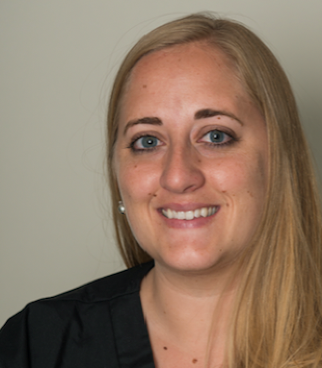Embracing culture, language, family, and community strengthens one's awareness. In its simplest form, awareness equates to knowledge or understanding of something. Awareness empowers and strengthens one's drive to unite and create change, to build a community, promote cultural norms and values, and enhance resources. Raising sexual assault awareness helps protect our agilvgi (sister, Cherokee), thunwin (aunt, Lakota), shimá (mother, Navajo), and ookomisan (grandmother, Ojibwe).
Every 68 seconds an individual experiences sexual assault. More than half of American Indian and Alaska Native women (56.1 percent) and one in four Native men (27.5 percent) have experienced sexual violence, and four of five women (84.3 percent) have experienced violence in their lifetime. The 2015 U.S. Transgender Survey reported that nearly two of three Native transgender individuals (65 percent) have experienced sexual assault in their lifetime. Recognizing and understanding these statistics helps to raise awareness and support efforts to make necessary changes in our communities.
In March 2024, six forensic healthcare funding opportunity sites completed their first year of building or expanding forensic healthcare-related services. By providing trauma-informed, patient-centered medical forensic examinations, the IHS Great Plains and Billings Areas, Chinle and Whiteriver Service Units, Northern Navajo Medical Center, and Lawton Indian Hospital have all worked diligently to ensure examinations are available to their patients, families, and communities affected by violence, ultimately helping American Indian and Alaska Native patients lower their risk for potential adverse health outcomes. Over this past year, these sites have hosted a combined 72 training events, provided training for almost 7,000 individuals across their staff and multidisciplinary teams, and spent more than 2,000 hours on forensic healthcare-related training!
Each of these locations and plenty of other communities across Indian Country are helping raise sexual assault awareness throughout the month of April. They are hosting walking events, forensic healthcare-related tabling, and educational events in their facilities, at their service units, and throughout their communities. Sites are collaborating with multidisciplinary teams and tribal councils to provide community education and raise awareness. Some programs are “Taking Back the Night” by offering martial arts classes, and some are “Painting the Town Teal.”
We work to enhance awareness and knowledge about sexual assault, not just in April, but throughout the year. What can you do to help promote and build safe communities? How will you support, unite, and contribute to raising sexual assault awareness to ensure ongoing safety and protection for every agilvgi, thunwin, shimá, and ookomisan in your communities? I encourage you to check out some of the resources below.
Resources:
- White House Proclamation on National Sexual Assault Awareness and Prevention Month, 2024
- Centers for Disease Control and Prevention – Fast Facts: Preventing Sexual Violence
- National Sexual Violence Resource Center – NSVRC SAAM
- Get Involved – Building Connected Communities: Sexual Assault Awareness Month (SAAM) (nsvrc.org)
- Denim Day - wear denim with a purpose on April 24th
- National Indigenous Women’s Resource Center – Sexual Violence Resource Center
- Connect with a Tribal Coalition in your Community – Tribal Coalitions | NIWRC
- StrongHearts: Culturally-specific and confidential helpline for American Indians and Alaska Natives impacted by domestic, dating and sexual violence. Help, safety, and resources are available 24/7/365.
- Phone Number: 1-844-762-8483
- StrongHearts Helpline Website
- For providers:
- Are you or someone you know interested in becoming trained as a sexual assault examiner/forensic examiner? Through the Forensic Nursing Consultant Program contract, Texas A&M University Center of Excellence in Forensic Nursing is offering forensic health care related training and courses for our IHS, tribal, and urban Indian organization providers (courses such as forensic examiner training, clinical skills labs, and more.)
- Website and to register for courses: Continuing Education and Professional Development (tamu.edu)
- Nurses United Against Human Trafficking – is offering 9 CEs/CMEs of human trafficking training and is free to all I/T/U providers. Reach out to Nicole.Stahlmann@ihs.gov if you are interested in registering for this course.
- Forensic Healthcare | Indian Health Service (IHS) website
- Forensic Health Care and Caring for American Indian and Alaska Native Patients guidebook is available for download.
- Contact Us, Stay Connected and the IHS Forensic Health Listserv – Sign Up | LISTSERV Email Groups (ihs.gov)
- Are you or someone you know interested in becoming trained as a sexual assault examiner/forensic examiner? Through the Forensic Nursing Consultant Program contract, Texas A&M University Center of Excellence in Forensic Nursing is offering forensic health care related training and courses for our IHS, tribal, and urban Indian organization providers (courses such as forensic examiner training, clinical skills labs, and more.)



